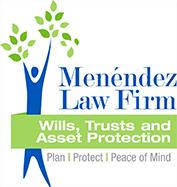Do I Need a Will or a Trust?
Nydia Menendez • July 2, 2021
by Estate Planning Attorney Nydia Menéndez
If you have reached a time in life when you are planning for the future, you have most likely have come across two of the most commonly known Estate Planning tools: A Last Will And Testament and A Revocable Living Trust. Both documents provide instructions on how your assets will be distributed when you pass away. However, it is important to know the differences between these two alternatives work and what it means to have one or the other.
Having a Last Will
Everyone has an Estate, which is what is left when we pass away. An Estate consists of assets – our stuff. A Will is a document which activates at death, in which you leave specific instructions regarding the distribution of those assets. The instructions are limited as to simply who will receive the assets, not how they will receive them.
For example, let’s assume you have three children, or three people to whom you want to leave your assets. One is super responsible, but is contemplating divorce; the other is the picture of irresponsibility and recklessness. (With this person money is like salt in water – it vanishes!) The third person has special needs and will likely never be self-sufficient.
If you use a Will to leave assets to these individuals, the entire inheritance could be lost to divorce, lawsuits, creditors or poor decisions. You could even cause the special needs individual to lose government benefits to which he or she would otherwise be entitled. As you can see, using a Will to distribute assets to those you love and want to bless, could do more harm than good.
Many people think a Will is the key to leaving their affairs in order. But that is not the case. In fact, Wills are very ineffective because in addition to what I’ve already mentioned, they must be administered by a court through the Probate process. That’s a lengthy and expensive undertaking.
Having a Revocable Living Trust
A Trust, on the other hand, is a document which creates a separate entity. You can think of a Trust as a company; the Trustee would be the President or the manager of the company; and the Successor Trustee would be similar to the Vice President of the company. In other words, a Trust has the ability to receive, keep and manage your assets. At the same time, a Trust survives the person who created the Trust in the first place. If you use a Trust for your planning, you can simultaneously create sub-Trusts for the distributions to each beneficiary to address their very unique needs.
With a Trust, if you become incapacitated, there would be no Guardianship or Living Probate, because you would have already nominated the person or persons authorized to manage your assets: the Successor Trustee(s).
Also, when you pass away, there would be no need for Death Probate, because your assets are already in a Trust, you’ve nominated Successor Trustees, and you have left instructions about what should happen with your assets. You’ve not only designated who should get your assets, but also how your beneficiaries should get them. This is a huge difference between a Will and a Trust.
A Trust can be managed by the Successor Trustee, who was originally appointed by you when the Trust was created. Thus, an inherent benefit of the Trust is that the person who created the Trust (you) nominates the Successor Trustee, and because the assets are already in the Trust, there is no need for court involvement. Hence, you are always in control!
These are just a few examples, which clearly show why a Will is usually not the optimal Estate Planning tool, and a Trust is likely the much better alternative.
Where to Get Started?
If you want to learn more about how to plan for your future to make sure you leave a legacy for your loved ones, we invite you to call our office at (954) 963-7220 to speak with a member of the Menéndez Law Firm who can help you navigate the process of creating a unique Estate Plan to meet your family’s needs. You may also want to watch the video series on our YouTube channel or join us for the next live Wills, Trusts and Estate Planning webinar on Zoom by registering at no charge on our website www.menendezlawfirm.com





